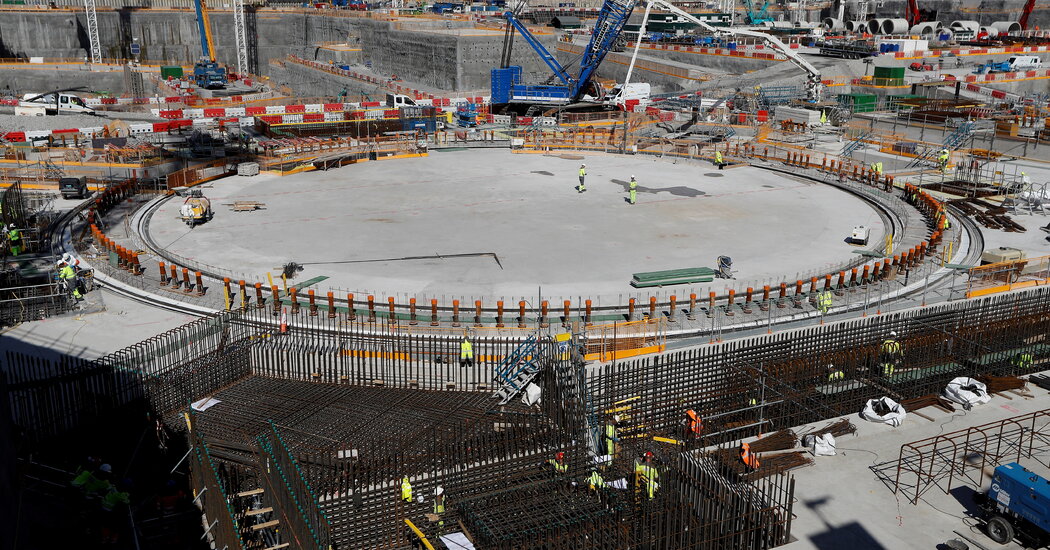Rolls-Royce, the British jet engine maker, said on Tuesday that it was forming a business to build a series of smaller, cheaper nuclear reactors as Britain looks for ways to cut carbon emissions and to reduce the costs of nuclear energy.
The kind of reactor proposed by Rolls-Royce would cover about two soccer fields, or about one-tenth the acreage of a conventional nuclear power station, the company said.
These plants would generate less power — about one-seventh the output of the giant nuclear installation being built at Hinkley Point in southwest England.
But Rolls-Royce said it hoped to reduce construction costs to around 2 billion pounds ($2.7 billion) each, compared with an estimated £22.5 billion for the Hinkley Point plant. Some of the savings would come from building a large number of plants and making modules in factories that can then be assembled at sites.
The company hopes to build 16 of the plants, known as small modular reactors, and said each could power around one million homes.
The British government will contribute a grant of £210 million to develop the plants, while Rolls-Royce and its partners, including Exelon Generation, an American nuclear power company, and BNF Resources, a private company, would together invest £195 million over three years.
The government is looking for sources of clean power to replace Britain’s aging nuclear plants, although the Rolls-Royce models are unlikely to come online for at least a decade.
Along with being a tool for hitting ambitious emissions targets, the government views the small nuclear program as a way to deliver on its promise to generate jobs in northern England, where, Rolls-Royce said, much of the investment will be based. The government also hopes to create an export industry supplying such plants to other countries.
Britain, though, is likely to encounter competition from France, which recently announced its own small reactor program, and the United States, where operators are working on similar concepts. Last week, NuScale Power, based in Portland, Ore., announced an agreement to build small modular reactors in Romania.
Despite risks from accidents, nuclear energy is attracting new interest in Europe and elsewhere as a tool for countries to hit increasingly ambitious targets to reduce the carbon emissions responsible for climate change. Nuclear plants are valued for providing large amounts of low-carbon electricity.
Rolls-Royce’s work with nuclear power includes designing the reactors aboard Britain’s nuclear submarines, work that began in the 1950s.
